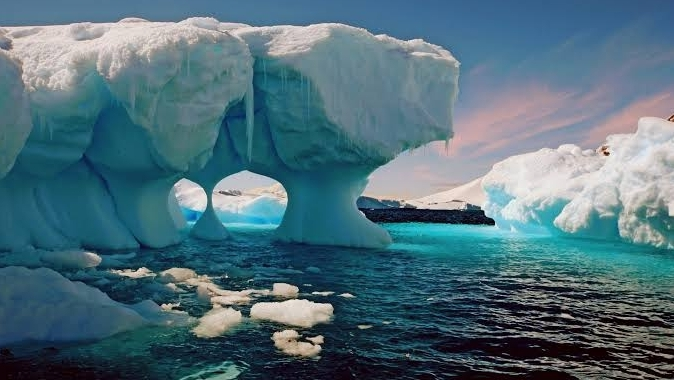The National Snow and Ice Data Center (NSIDC) has reported an unprecedented and alarming drop in sea ice levels in Antarctica.

The National Snow and Ice Data Center (NSIDC) has reported an unprecedented and alarming drop in sea ice levels in Antarctica. This decline, described by experts as “mind-blowing,” carries significant implications for global climate patterns and ecosystems.
Unprecedented Decline:
Sea ice levels in Antarctica have plummeted to a historic low this year, leaving even seasoned experts astonished. Walter Meier, a senior research scientist at the NSIDC, expressed his disbelief, highlighting the gravity of the situation.
Climate Regulation Impact:
Sea ice, crucial in regulating the planet’s climate, reflects sunlight back into space, thereby cooling the Earth. With less sea ice, more dark water surfaces absorb heat, resulting in warmer temperatures. This change in the polar regions has repercussions that extend globally.
Recurring Concerns:
This isn’t the first time Antarctica has raised alarms regarding sea ice levels. Similar lows were observed in 2017 and 2022. Despite the immense size of Antarctica, roughly 1.5 times that of the US, scientists affirm that the situation is deteriorating.
Influence of Global Warming:
Antarctica’s climate patterns have been markedly affected by global warming. Over the past seven decades, the continent has experienced temperature spikes of 3.2°C, a rate over three times the global average. Additionally, the Antarctic and Southern Ocean Coalition reports accelerated ice shelf dissolution compared to the 1980s.
Inconsistent Historical Behavior:
While sea ice behavior in Antarctica has exhibited fluctuations, recent record lows underscore the current critical state. A notable decline occurred in the early 20th century, followed by an increase in subsequent years. Some areas even experienced ice gain as recently as 2018.
Root Causes:
A study published in Nature attributes these declines to rising ocean temperatures, indicating that the ice is melting from beneath. Ed Doddridge and Ariaan Purich, co-authors of the study, express concern that these alterations might be irreversible.
Implications for Policy and Action:
The staggering drop in sea ice levels in Antarctica serves as an urgent call to action to combat climate change. As these changes become potentially permanent, the study emphasizes the immediate need for policy adjustments and global initiatives.
Antarctica, often viewed as Earth’s last frontier, is facing a critical environmental challenge with the drastic decline in sea ice levels. This development reverberates across the globe, affecting climate patterns, ecosystems, and sea levels. Urgent and coordinated efforts are imperative to mitigate the far-reaching consequences of this alarming trend.